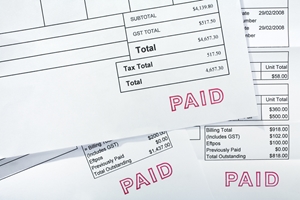
Debt is a highly sensitive subject: In fact, no one really likes to talk about it. But due to the merciless effects of the COVID-19 lockdown on the economy and employment, which have led to a 33% spike in the number of people out of work compared to this time last year — according to data from the Australian Bureau of Statistics — many people throughout the country are struggling with unpaid bills.
Business owners are feeling the fallout as well, evidenced by reduced sales, layoffs, limited in-person buying due to social distancing measures and an overall growth in companies closing their doors for good. Indeed, in October alone, business defaults nationwide rose approximately 23% from 12 months earlier, according to CreditorWatch figures obtained by Business Insider Australia.
In short, as difficult a time this is for everyone in Australia, not to mention the world over, debts simply have to be collected — otherwise, your business may ultimately suffer the same fate due to insufficient cash flow. But how do you go about settling balances without compromising the relationships you've formed with your loyal customers? The following strategies may serve as effective solutions to this very delicate quandary:
Be proactive about it
It's rare for customers to buy through credit with the foreknowledge they won't pay up when the invoice comes due. It's often a function of a slip of the mind. And that's understandable, in these highly tumultuous times. The best way to avoid such incidents is by issuing reminders early and often. Whether you do so through automated email messages, texting, letters or phone calls, subtle reminders via multiple channels can help you get out ahead of these issues. The key is spacing them out, so that you don't come across as overly aggressive or antagonising.
Establish the right tone
Frequently, it's not so much what you say but how you say it that makes all the difference. Just about everyone can attest to this fact, as we've all encountered examples of this in our daily lives. Apply the same tactic to your method. As The Balance Small Businesses advised, it's best to start out with a positive, somewhat relaxed tone. But as the due date draws closer, your request may need to become more assertive and serious. Again, the most crucial aspect of this approach is doing so gradually. One way of going about this is by citing how many times you've contacted them requesting payment. This may help them see that you've given plenty of warning and leeway.
Keep a record of all correspondence
Depending on how long the debt has been outstanding, you've likely received replies from customers who are overdue on whatever it is that they purchased. In that correspondence, they may have explained why it is they're late or perhaps made commitments to pay at a later date. As the Australian Securities & Investments Commission pointed out, you should maintain a written record of your interactions. This will give you the proof you need to refresh your customers' memories as to what they said originally, so you're not making any assumptions or taking anything out of context. Be sure to make note of the date as well.
Partner with a debt collector
You didn't start your business with the expectation that you'd have to constantly remind your customers about debts that have yet to be settled. Few people or organisations like this unenviable task. That's why there are debt collection agencies that can handle it for you. If there comes a point where a customer's debt is severely overdue (by at least several months), you may want to enlist the help of a collector. However, you should do your research to ensure that the tactics the agency uses aren't overly harsh or aggressive. Talk to any of your business colleagues to see if they have any recommendations.
Be willing to compromise
There may be instances where an unpaid debt is so in arrears or the customer has racked up an incredibly high balance that would be virtually impossible for them to pay back in its entirety. In this case, you have a decision to make: Do you push for the full amount or accept the loss?
It doesn't have to be either-or. You may want to see if you can come to an agreement so a certain percentage is paid back. Alternatively consider setting up a payment plan that allows them to pay off the debt in installments. Your willingness to work with the customer will be genuinely appreciated.
If you're struggling with a debt collecting strategy, WMC Accounting has the solution. Contact us today or download our e-book to learn more.




